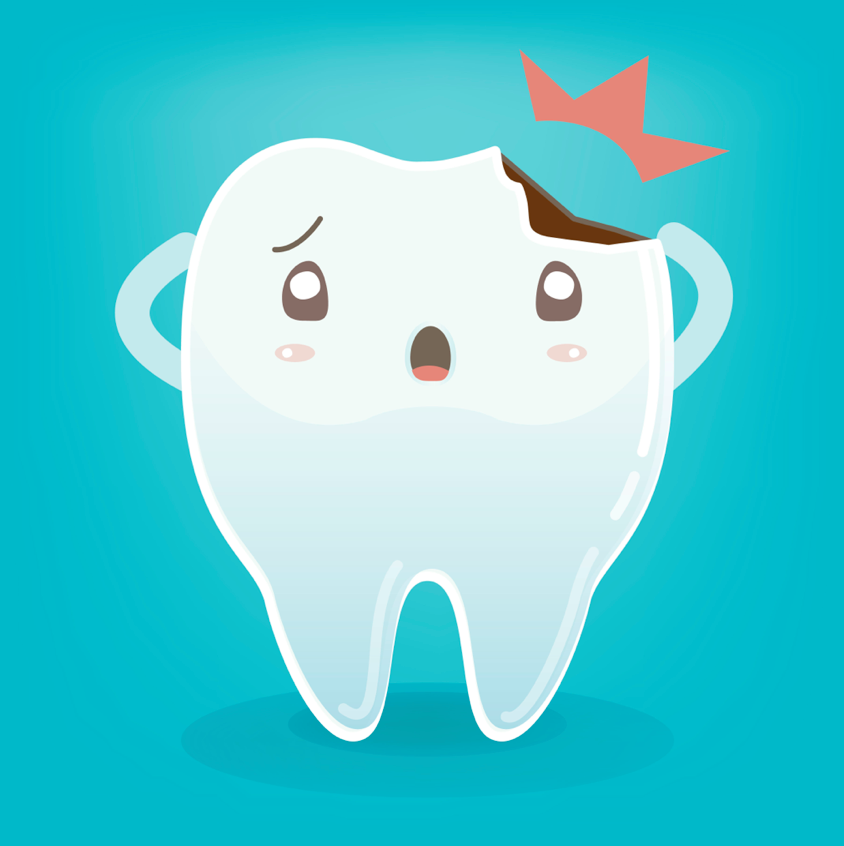How to Handle a Dental Emergency

The days are getting warmer and longer. Spring is in the air as we begin the month of March. That means the children will be out of school soon and enjoying their summer break. As the kids have more time to enjoy the outdoors, there are also more opportunities for accidents. It’s no secret that children are prone to them. It’s quite possible to catch a wild pitch in the mouth during a baseball game or maybe catch an elbow during a pickup game of basketball. These things happen. However, it’s important to know what to do when they do. There are different actions you need to take for different dental emergencies.
A Tooth is Knocked Out
If your child happens to have his or her tooth knocked out, the first step is to locate it. If it’s just a baby tooth, then it looks like the Tooth Fairy is making a visit that night. Although, we do suggest your child makes an appointment to get it checked out. If a baby tooth is removed prematurely, your child’s permanent tooth may come in crooked. We can prevent this by fitting your child’s mouth with a space maintainer, practically guaranteeing their teeth come in straight.
If the tooth that got knocked out is not a baby tooth, again make sure you locate wherever it may have landed. Once you have it, make sure you pick it up by the chewing surface and not the root. Germs from your fingers can infect it. If the tooth is clean, have your child reinsert it into their socket. If they cannot reinsert it back into their gum because it is heavily damaged or it is dirty, it’s important to keep the tooth moist. This will preserve it longer. Your child can put it in a glass of milk or keep it in their mouth next to their cheek where their saliva will keep it moist. It’s important to note that regular tap water is not recommended for long-term storage because the root surface cells do not tolerate water for long periods of time.
If you are able to do these three things: locate the tooth, place it back in the socket/keep it moist, and make it to the dentist, there is a really good chance you’ll be able to save your child’s tooth. However, if it appears to be dying from being exposed for too long, we can certainly fix that smile so there are no gaps between any teeth! Bridges are a wonderful solution for solitary missing tooth. It helps maintain that natural look to your child’s smile.
Chipped Tooth
A chipped tooth actually requires even more immediate attention that an avulsed tooth. We can easily repair a chipped tooth, however, a chipped tooth has a greater chance of being infected. If the chip is large enough, the dental pulp will be exposed, greatly increasing your child’s chance of an infection within the tooth. This can cause major problems.
Much like a lost tooth, if you are able to locate the broken piece of the tooth, make sure you keep it most. Our dentists may be able to bond it back to the tooth, to keep your child’s smile looking original. However, if we can’t preserve the original piece to the tooth, or it’s too damaged, we can seal up the enamel to prevent bacteria from infecting it and give your child a crown instead of pulling the tooth altogether.
It may seem silly doing that for a child’s tooth, especially if it is just a primary tooth. But it’s best to preserve it. Pulling it would be our last option as it leaves your child’s mouth lopsided. This can cause developmental issues when it comes to speaking and eating.
Subsiding a Toothache
In the event your child has a severe toothache, the first thing is to try and schedule a dentist appointment right away. The quicker you can get them into our office, the faster we can address the problem. Nevertheless, there are a few at home techniques you can use to help subside the pain. Your number one option is to have your child wash their mouth out with warm saltwater. It will help soothe the pain and sterilize the infection if there is one.
If you notice any swelling, it may also be a good idea to apply an icepack or a cold washcloth to the area that is swollen. This will help reduce the swelling a little and provide some relief. You should also provide them with some kind of pain-relief medicine, whether it is acetaminophen or ibuprofen. Either will help. And if all of this helps to completely alleviate the pain, you should still schedule an appointment for your child. There was a specific reason as to why your child had that toothache, and we’ll make sure we figure out why and how to stop it from reoccurring!
See More Staff Members See More Questions and Answers See More Testimonials